Finney Award Recipients
Finney Family Field School Fund
Created through the generosity of CC alumna Suzanne Finney and the Finney family, the Finney Family Field School Fund will cover or reduce expenses for students to participate in field schools outside of the state of Colorado. Preference for funding goes to applications to participate in archaeological field schools, but students may also apply for funding to attend field schools in other subdisciplines of anthropology. Preference will also be given to students who demonstrate financial need, but other applicants will also be considered. Funds may be used for but are not limited to: field school tuition; travel expenses; airfare; local travel; meals and accommodations.Recipient Experiences
Matthew Silverman '23
While participating in this field school, I had the opportunity to work on two projects (one offshore, one foreshore) as part of the Hurricane Irma Damage Assessment and Mitigation Strategy (HIRMADAMS) Subgrant from the National Park Service and the Department of State’s Division of Historical Resources. The two sites we were working on, as well as the six other sites includes in this project, had been previously excavated. Both sites we worked on were poorly documented before, and our work focused on creating a new baseline for further comparison, whereas the other sites were more thoroughly documented and were being re-excavated to assess the damage done by hurricanes Irma, Harvey, and Maria and make recommendations to the Federal Government on how best to preserve sites like these in the future.
As part of this field school experience, I was able to learn a variety of new skills such as baseline offset mapping, hydro probing, dredge excavation, site mapping, and circle searches. Additionally, I learned and practiced many new dive and boat skills such as hookah diving, lift bag operations, live boating, boat launching and operations, boat mooring and tending, and dive operation planning and supervision.
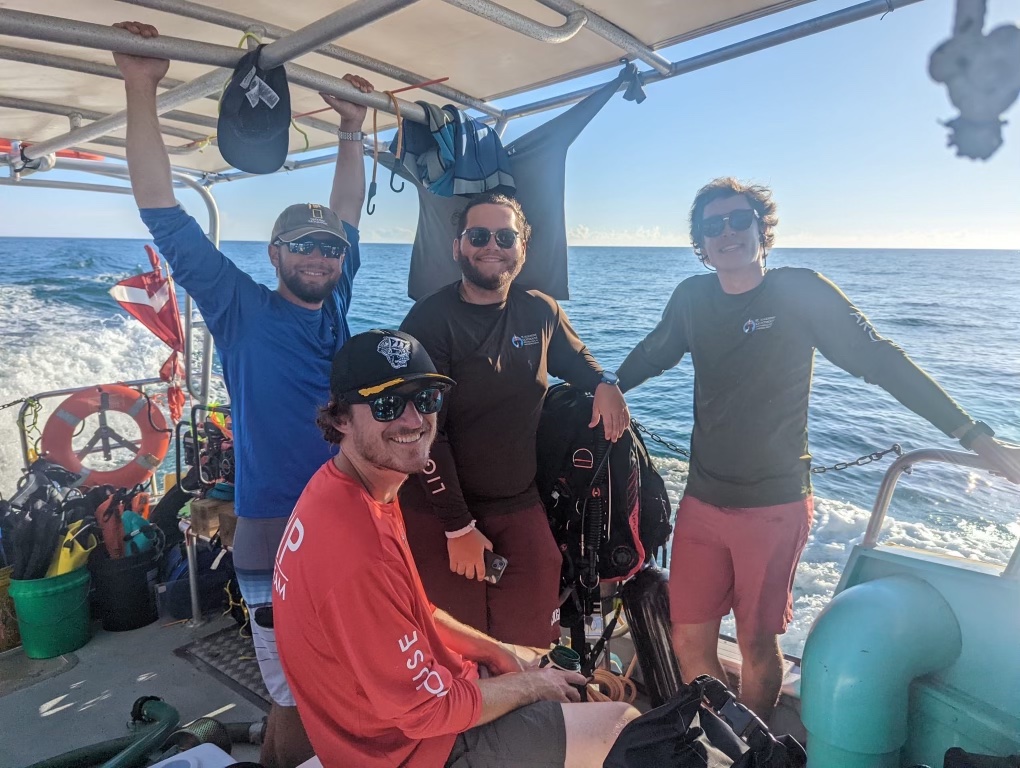
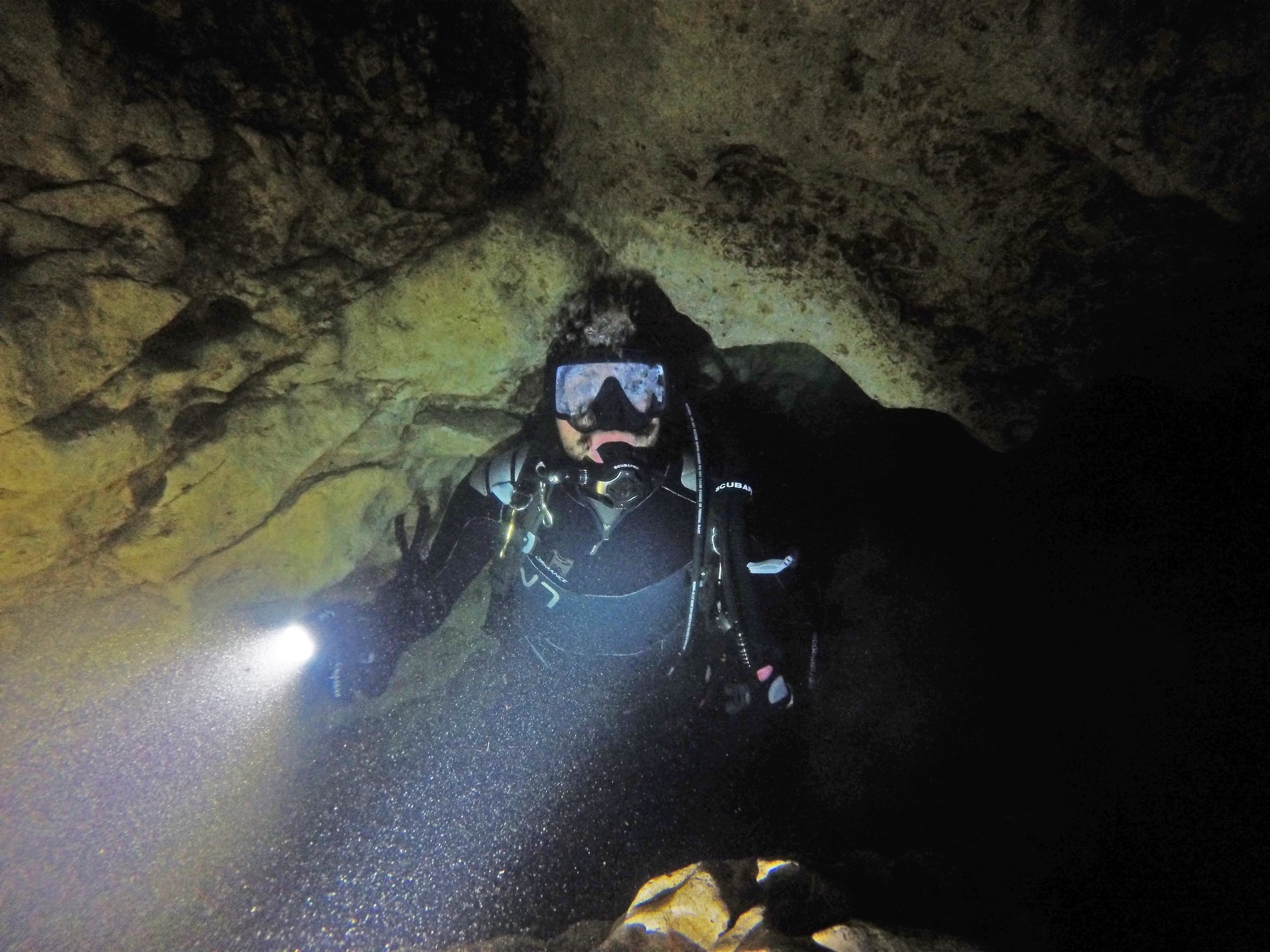
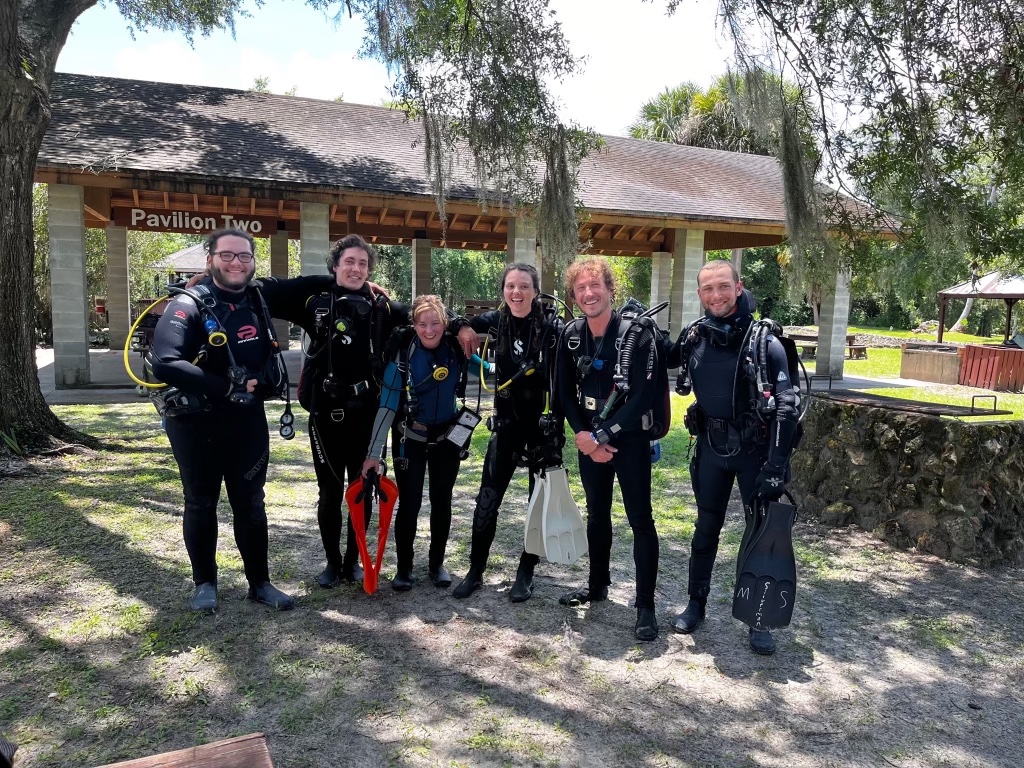
Jasmine Volkaert '24
This summer I received funding from the Finney Family Fieldtrip Fund to attend the Rivulus Dominarum Bioarchaeology’s 2022 Transylvanian Laboratory Project in Baia Mare, Romania. There I studied human osteology, mortuary archaeology, the history of Romania and Baia Mare, paleopathology, and many other interesting topics. The remains that I and my colleagues studied are from the Piaţa Cetăţii collection which belonged to the people of Baia Mare from the 15th-17th century and was excavated between 2012 and 2015. I also designed and presented a research project about the dental and cranial pathologies of the remains from the Piaţa Cetăţii collection at the international conference, hosted for the first time at the County Museum of History and Archeology Maramures.
After the laboratory project has come to an end, I further participated in the cave excavation project with the local archeologists and speleologists in the region called Sălnița. This cave, "țura Dracului” not only contains animal bones but also the remains of roughly 5,000 years old potteries and tools from the bronze age.
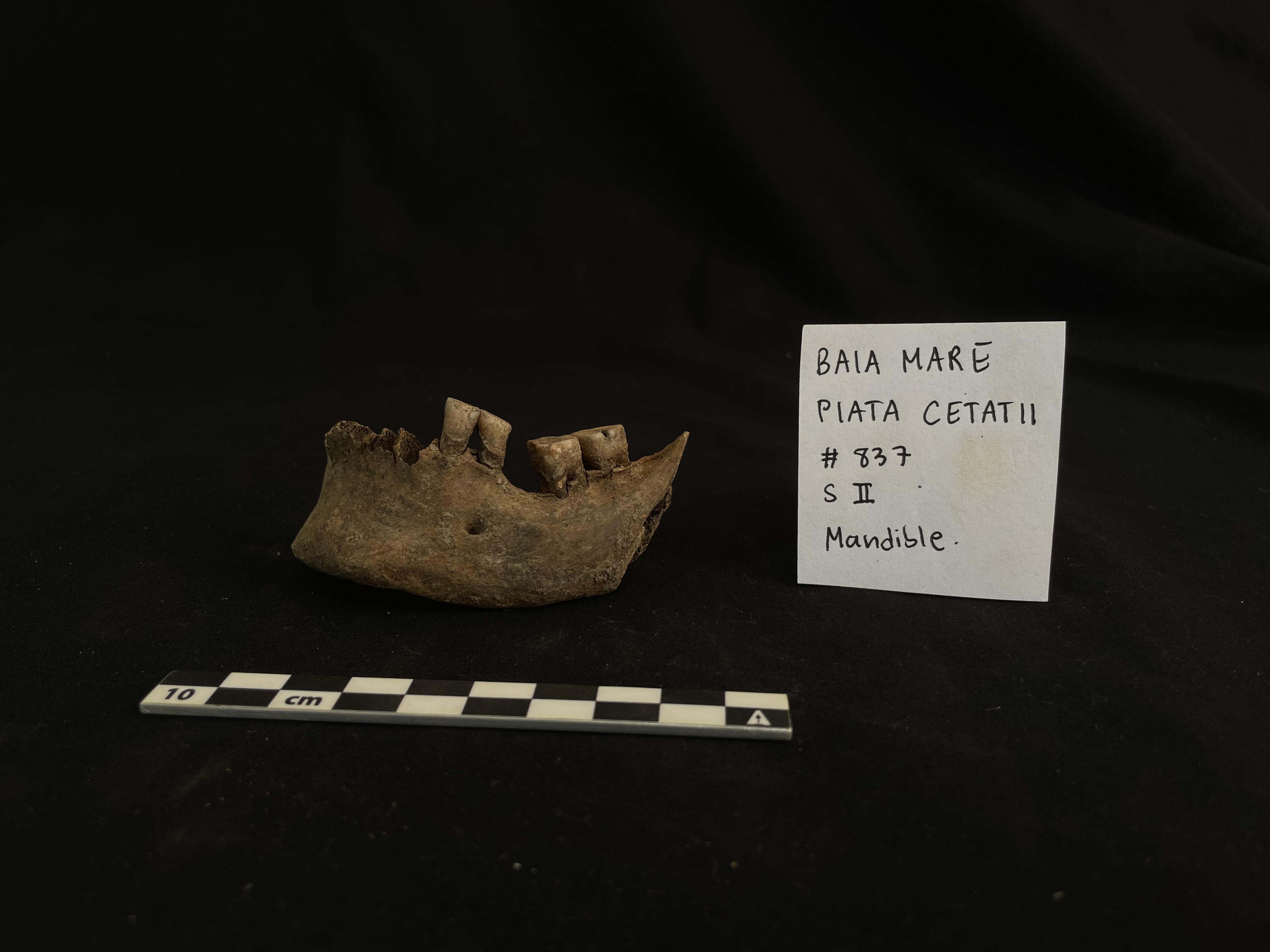
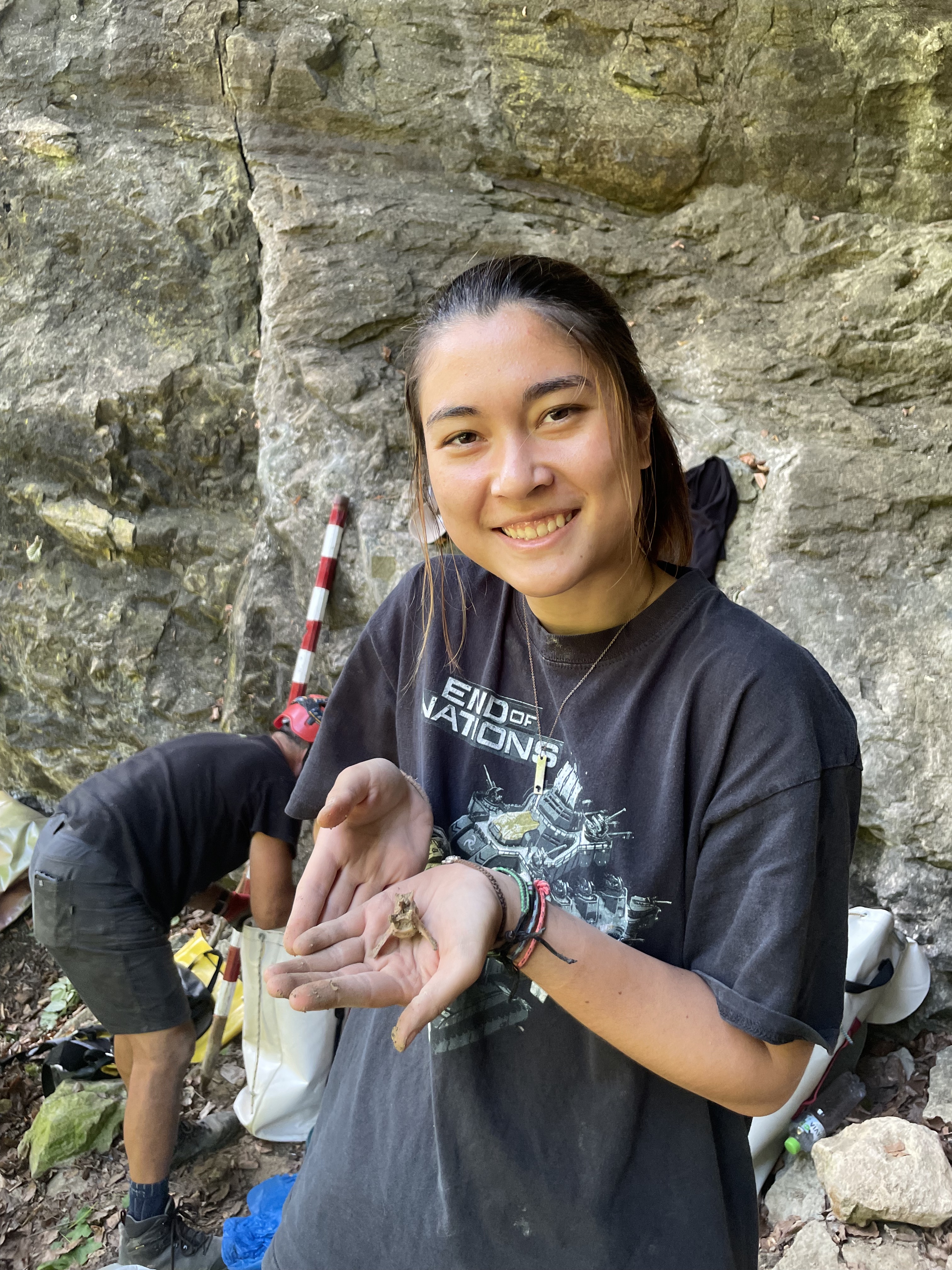
Zara Laber '25
This summer, I had the incredible opportunity to attend a month-long bioarchaeology field school in East Bulgaria thanks to the Finney Family Fieldtrip Fund. The first two weeks were spent at a museum in a small town, where I took an intensive osteology course. I worked hands-on with human remains from a necropolis under the modern beach town of Sozopol, learning to document and analyze the bones to uncover details about past lives. For the next two weeks, I joined an excavation of one of the few ancient roads discovered in Eastern Europe. This site was relatively new, so I got to experience how an excavation progresses, contributing to the discovery and interpretation of historical evidence. I also worked briefly on necropolis excavations, learning more about burial practices and overall grave excavation. The field school was an unforgettable experience that allowed me to apply classroom knowledge in real-world settings while gaining a deeper understanding of both archaeology and human history.
Thank you so much for this opportunity, it was a transformative experience. I cannot thank you enough.
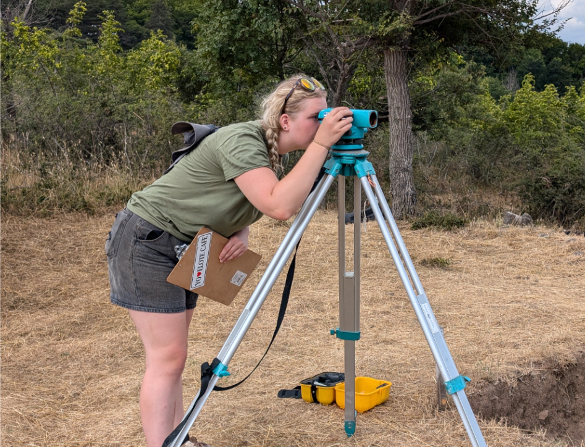
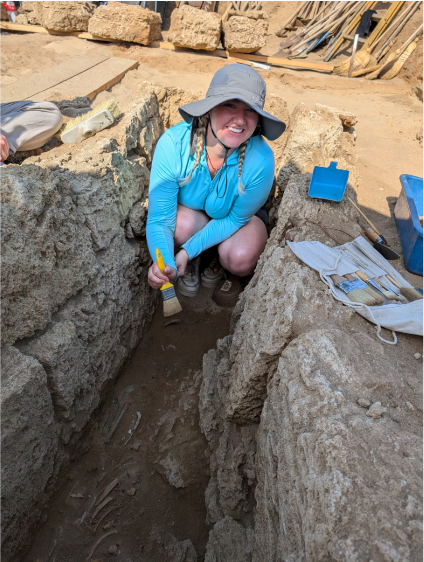
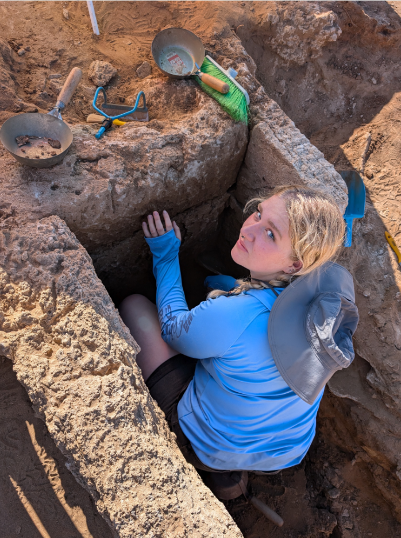
Additional Recipients
2022 Katie Norton, Piapan Archaeological Field School, Pan de Azúcar de Nepeña, Peru
2023 Douglas Peecher, Nemea, Greece Archaeological Field School
2023 Adele Davis, Primate Monitoring and Behavior Program at Los Amigos Biological Station, Peru
2023 Parker Reece, NOMAD Science Field School, Khovsgol, Mongolia
2025 Alexander Hooper, Kissonegra-Skalia Excavation, Heritage and Archaeological Research Practice, Cyprus
2025 Lilah Tuchband, Caribbean: Providence Island Heritage Archaeology


